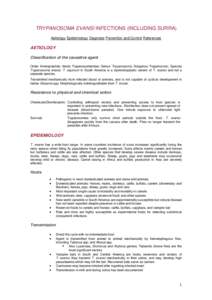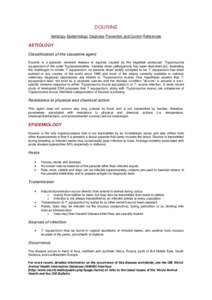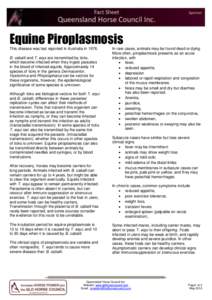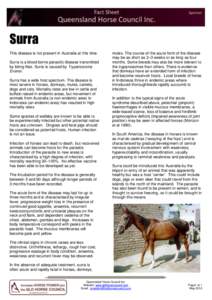<--- Back to Details
| First Page | Document Content | |
|---|---|---|
 Date: 2014-03-21 08:41:07Medicine Veterinary medicine Microbiology Kinetoplastid Animal diseases Surra Trypanosoma evansi Trypanosoma Trypanosomiasis Tsetse fly Variant surface glycoprotein African horse sickness |
Add to Reading List |
 TRYPANOSOMA EVANSI INFECTIONS (INCLUDING SURRA) Aetiology Epidemiology Diagnosis Prevention and Control References AETIOLOGY Classification of the causative agent Order Kinetoplastida; family Trypanosomatidae; Genus Tryp
TRYPANOSOMA EVANSI INFECTIONS (INCLUDING SURRA) Aetiology Epidemiology Diagnosis Prevention and Control References AETIOLOGY Classification of the causative agent Order Kinetoplastida; family Trypanosomatidae; Genus Tryp


![IAEA-TECDOC[removed]Developing Methodologies for the Use of Polymerase Chain Reaction in the Diagnosis and Monitoring of Trypanosomosis IAEA-TECDOC[removed]Developing Methodologies for the Use of Polymerase Chain Reaction in the Diagnosis and Monitoring of Trypanosomosis](https://www.pdfsearch.io/img/04b32accb80a77dc973a361690dbe5f7.jpg)